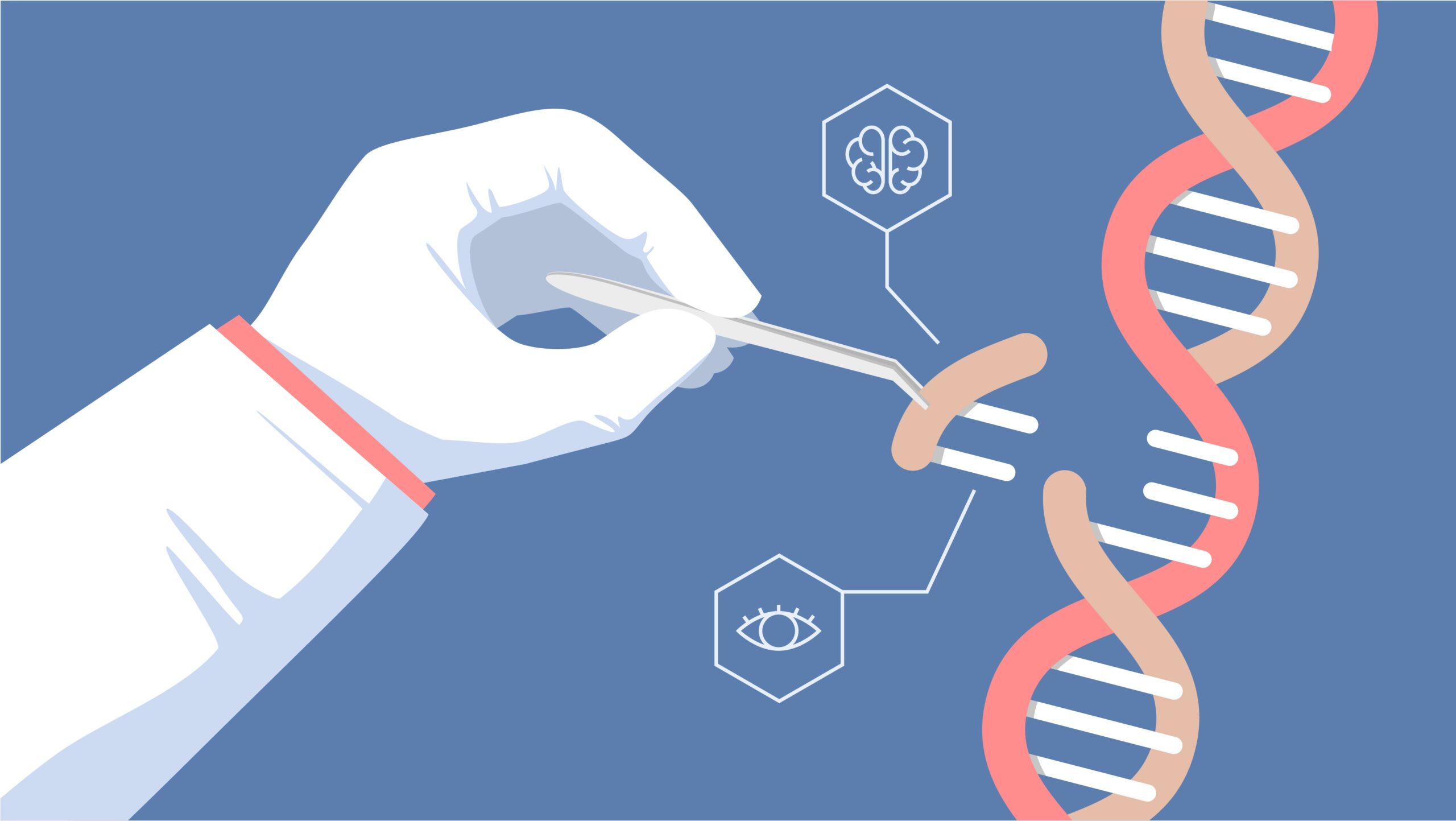
This article was written by Jesse Holzman, MD, and internal medicine resident at the University of California and a DocWire News’ CardioNerds correspondents. Follow her at @jholtzman3.
Investigators have found that intravenous infusion of a CRISPR-Cas9 based gene therapy decreases serum transthyretin (TTR) protein in patients with hereditary TTR amyloidosis (ATTR).1
Wildtype TTR protein is expressed primarily by the liver to carry thyroid hormone and vitamin A. However, mutations in TTR lead to destabilization and misfolding that precipitates accumulation in the myocardium, spine, peripheral nerves, and other organs.
Hereditary ATTR affects more than 50,000 people worldwide2 and is a progressive illness resulting in death within 2 to 6 years following diagnosis.3 Previous therapies using small interfering RNA (siRNA)4 and antisense oligoneucleotides5 demonstrated sustainable reductions in circulating TTR protein.
Gillmore and colleagues report the findings of a global, multiphase trial in which they administered a CRISPR-Cas9 therapy to six patients aged 18 to 80. This study was based on proof of concept models involving transgenic mice treated with equivalent doses prior to human testing.
The study excluded patients with non-ATTR amyloidosis and those that had previously received siRNA therapy. Patients were monitored for safety and efficacy endpoints across 24 months, with longer safety follow-up mandated by regulatory authorities.
The investigators reported a dose-dependent mean reduction in serum TTR protein of 52% in the low dose group and 87% in the high dose group, sustained at 28 days. In comparison, prior siRNA therapy demonstrated an 81% reduction in TTR4, while antisense oligoneucleotide therapy demonstrated a 79% reduction in serum TTR.5
While this study brings optimism for patients with hereditary ATTR, concern remains regarding off-target gene editing effects, though investigators hypothesize that such effects might occur with higher dose infusions. Dr. Martha Grogan, Director of the Cardiac Amyloid Clinic at the Mayo Clinic further notes that “one question in my mind is the concept of permanent inhibition of TTR production. TTR reportedly plays a role in a cognition, so that is something to consider.” Indeed, stabilized TTR tetramers have previously demonstrated neuroprotective effects against cognitive decline through in vitro and in vivo studies.6 Dr. Grogan also said that “the study is interesting and this therapy, in theory, could be a game changer for TTR amyloid. However, it’s crucial to realize that this is a preliminary study of safety and pharmacodynamics in only six patients.”
Gillmore and colleagues present promising evidence for CRISPR-Cas9 therapy to prevent the progression of ATTR-related cardiomyopathy, but future studies in larger populations are needed to explore the durability of effect and safety profile for this novel and exciting therapy.
A milestone in modern medicine: 1st therapeutic in vivo gene editing in human patients!
From Julian Gillmore, @intelliatweets & colleagues out today @NEJM:https://t.co/4xyyFHAwAj
Here’s an overview of a new potential treatment for transthyretin (ATTR) amyloidosis.
(thread) pic.twitter.com/vHHuRKnHRu
— Kiran Musunuru (@kiranmusunuru) June 26, 2021
References
- Gillmore JD, Gane E, Taubel J, et al. CRISPR-Cas9 In Vivo Gene Editing for Transthyretin Amyloidosis. N Engl J Med. 2021;doi:10.1056/NEJMoa2107454.
- Hawkins PN, Ando Y, Dispenzeri A, Gonzalez-Duarte A, Adams D, Suhr OB. Evolving landscape in the management of transthyretin amyloidosis. Ann Med. 2015;47(8):625-38. doi:10.3109/07853890.2015.1068949.
- Maurer MS, Bokhari S, Damy T, et al. Expert Consensus Recommendations for the Suspicion and Diagnosis of Transthyretin Cardiac Amyloidosis. Circ Heart Fail. Sep 2019;12(9):e006075. doi:10.1161/CIRCHEARTFAILURE.119.006075.
- Adams D, Gonzalez-Duarte A, O’Riordan WD, et al. Patisiran, an RNAi Therapeutic, for Hereditary Transthyretin Amyloidosis. N Engl J Med. J2018;379(1):11-21. doi:10.1056/NEJMoa1716153.
- Benson MD, Waddington-Cruz M, Berk JL, et al. Inotersen Treatment for Patients with Hereditary Transthyretin Amyloidosis. N Engl J Med. 2018;379(1):22-31. doi:10.1056/NEJMoa1716793.
- Saponaro F, Kim JH, Chiellini G. Transthyretin Stabilization: An Emerging Strategy for the Treatment of Alzheimer’s Disease? Int J Mol Sci. Nov 17 2020;21(22)doi:10.3390/ijms21228672.







 © 2025 Mashup Media, LLC, a Formedics Property. All Rights Reserved.
© 2025 Mashup Media, LLC, a Formedics Property. All Rights Reserved.